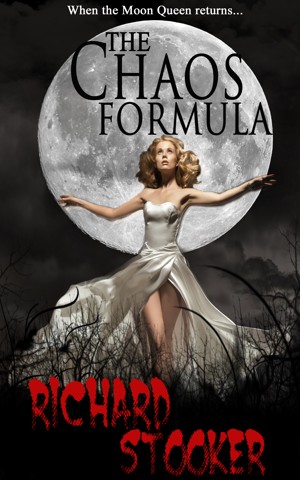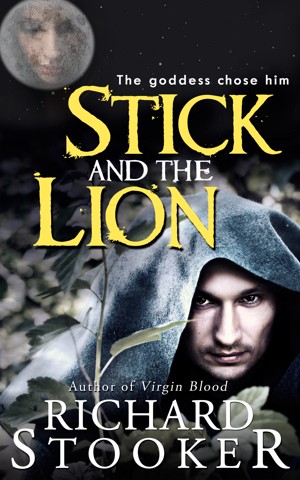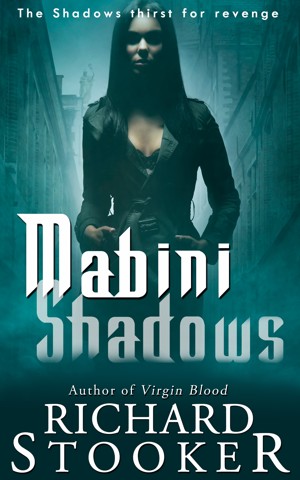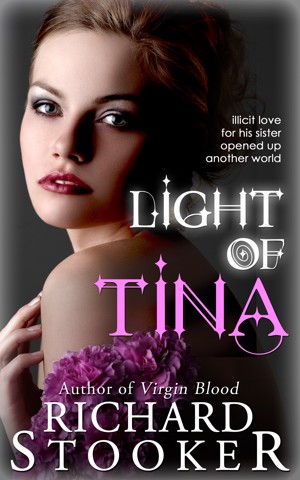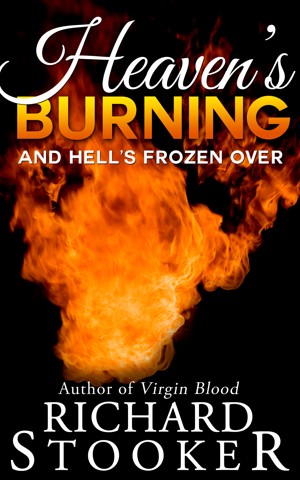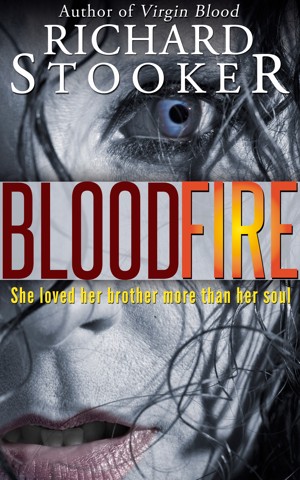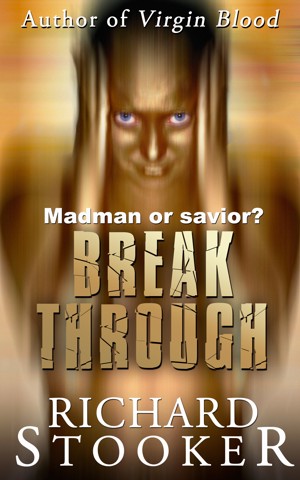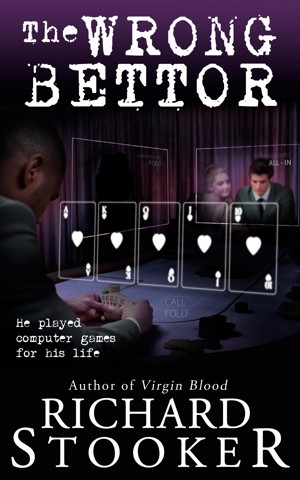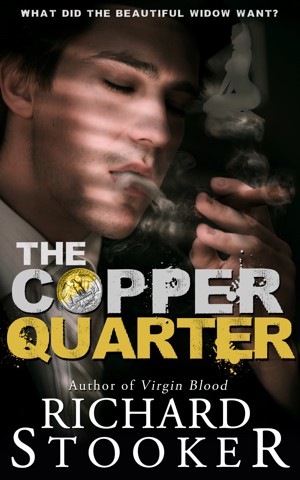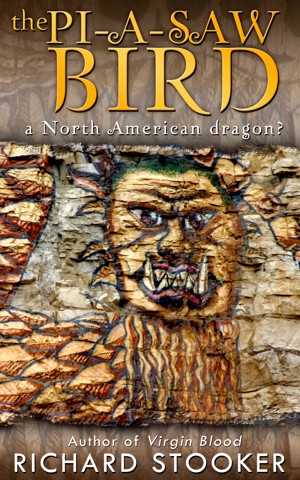Connect with the Author
Share with Friends
Interview with Richard Stooker
Published 2013-09-07.
Smashwords Interviews are created by the profiled author or publisher.
Latest books by This Author
The Chaos Formula
by Richard Stooker
Price:
$2.99 USD.
Words: 153,490.
Language:
English.
Published: November 28, 2012
by
Richard Stooker.
Categories:
Fiction » Fantasy » Historical, Fiction » Fantasy » Contemporary
Can Jaxon Hampton love the Moon Queen enough? If Zeth, the servant of her enemies the Shadow Giants, defeats Jaxon in battle, the Shadow Giants unleash chaos on Earth and destroy humanity. Every night Jaxon experiences vivid recurring dreams in which, 10,000 years ago, he escorts a beautiful woman through many dangers to the top of a cliff overlooking the Nile River.
Stick and the Lion
by Richard Stooker
Price:
$0.99 USD.
Words: 5,980.
Language:
English.
Published: August 31, 2012
by
Richard Stooker.
Categories:
Fiction » Fantasy » Historical, Fiction » Fantasy » Short stories
To graduate from wizard training, Stick must direct a starving lion to go from one end of a long cage to the other. Then survive the brother wizard who hates him -- and the Moon Queen who loves him. Tired of magic wand, eye of newt 'recipe' magic? If the ingredients really contain the power, you perform a chemistry experiment. Perhaps real magicians impose their will without hocus pocus.
Mabini Shadows
by Richard Stooker
Price:
$0.99 USD.
Words: 70,970.
Language:
English.
Published: August 31, 2012
by
Richard Stooker.
Categories:
Fiction » Horror » Weird fiction, Fiction » Fantasy » Contemporary
When Dan finally returns to Manila, he remembers his love for the bar girl Lin Lin. So does Raul the police informer. And the Mabini shadows. Now Lin Lin's face consists of a mass of scar tissue, so her shame keeps him away from her old lover. He can't still love her. Or can he? And then Raul wants to tip off the police. While the Mabini shadows lie in way to take their revenge.
Light of Tina
by Richard Stooker
Price:
$0.99 USD.
Words: 72,730.
Language:
English.
Published: August 31, 2012
by
Richard Stooker.
Categories:
Fiction » Horror » Weird fiction, Fiction » Fantasy » Urban
Twenty-one years after, Paul Templeton still did not know whether in his old dream he rapes and murders his sister. The rapist killer escapes. Nightmares torture Paul. If he didn't kill Tina, how can he witness it, dreaming he sees it happen in a mirror? Now a beautiful young woman moves into the neighbor, reminding Paul of Tina? Is the killer after her too?
Heaven's Burning
by Richard Stooker
Price:
$0.99 USD.
Words: 71,860.
Language:
English.
Published: August 31, 2012
by
Richard Stooker.
Categories:
Fiction » Horror » Weird fiction, Fiction » Fantasy » Urban
God gave Ted Erickson the power to freeze the sinful, so why does his own body keep growing numb? A prostitute. A dirty bum. They can't survive Ted's growing ability to exhale cold air from the Ninth Circle of Hell. So how can the suicidal teenager next door keep singing?
BloodFire
by Richard Stooker
Price:
$0.99 USD.
Words: 70,720.
Language:
English.
Published: August 22, 2012
by
Richard Stooker.
Categories:
Fiction » Horror » Undead, Fiction » Fantasy » Historical
Elena's brother Ion visits his home today. But the Boyar already cut Ion's throat and buried him in unconsecrated ground. Their mother knows Ion returns tonight for his sister. Can she convince the priest to grant him absolution? Or the Boyar to protect Elena from the brother who sinned with her even while still alive? Does Elena want protection from her brother?
Breakthrough
by Richard Stooker
Price:
$0.99 USD.
Words: 70,290.
Language:
English.
Published: August 22, 2012
by
Richard Stooker.
Categories:
Fiction » Horror » General, Fiction » Horror » Weird fiction
Madman or savior? Or both? The police take Terrell Boyd to Malcolm Bliss Mental Hospital. Diagnosis: Schizophrenia, paranoid type. Can the paranormal powers he claims really work? What if Jesus Christ returns to Earth the second time, only to have the world drive him insane?
The Wrong Bettor
by Richard Stooker
Price:
$0.99 USD.
Words: 74,380.
Language:
English.
Published: August 22, 2012
by
Richard Stooker.
Categories:
Fiction » Science fiction » Short stories, Fiction » Mystery & detective » Hard-Boiled
Dr. Pennell just wants his son back home. But Crain Dalton discovers the mob wants the boy to entertain the bigshots by playing a virtual reality game for the ultimate stakes -- his own life. Even doctors with a trunk of hidden cash suffer when their teenage son hangs out at the local casino and takes a hooker for a girlfriend. Can Crain find Don Pennell in time to save him?
The Copper Quarter
by Richard Stooker
Price:
$0.99 USD.
Words: 5,980.
Language:
English.
Published: August 22, 2012
by
Richard Stooker.
Categories:
Fiction » Science fiction » Short stories, Fiction » Mystery & detective » Hard-Boiled
The friendly man shocks the bar by paying for everybody's drinks with a silver quarter. His ruthless killing in the street outside surprises nobody. When private detective Crain Dalton seeks out the beautiful widow, he uncovers a plot to buy local elections with the only kind of money worth anything anymore -- silver and gold, once again illegal to own.
The Pi-a-saw Bird
by Richard Stooker
Price:
$0.99 USD.
Words: 72,500.
Language:
English.
Published: July 16, 2012
by
Richard Stooker.
Categories:
Fiction » Fantasy » Short stories, Fiction » Fantasy » Historical
In 1673 the first European explorers to travel down the Mississippi River spot on the high, sheer bluffs the painting of a huge, winged monster. Where does it come from? Why did somebody take the trouble and risk to paint it on bluff face? The Indians told them the terrifying story of a man-eating dragon-like creature, and the brave chief who killed it.

